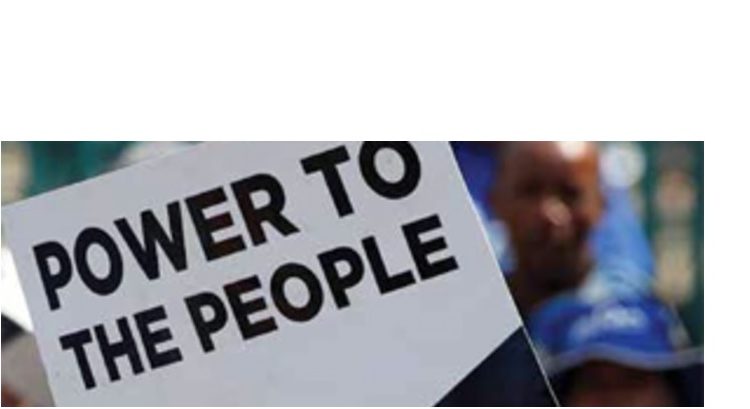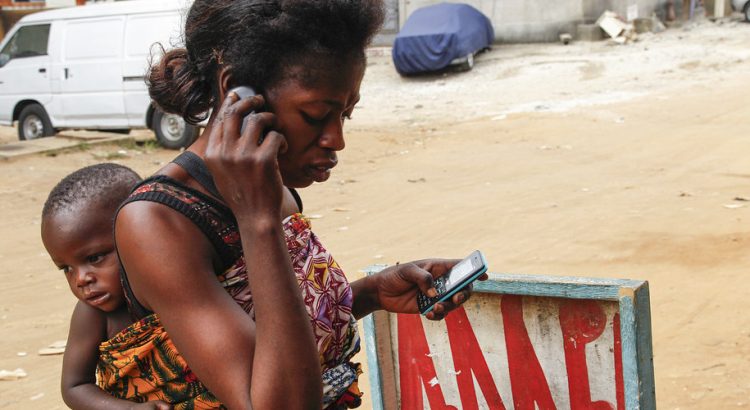By the International Budget Partnership
A number of multistakeholder initiatives (MSIs) have brought together governments, civil society organizations (CSOs), and private sector firms to hash out a variety of difficult governance issues. Initiatives such as the Open Government Partnership, the Extractive Industries Transparency Initiative, and the Global Initiative for Fiscal Transparency work to encourage transparency and accountability reforms in a rapidly expanding number of countries around the world.
But while the breadth of these MSIs is inarguable, how deep do reforms really go? What tangible changes are they driving at the country level? These are some of the questions that Dr. Brandon Brockmyer of the Accountability Research Center has been investigating. We recently spoke to Brandon about his research.
IBP: Can you give us a quick outline of your findings in terms of the effectiveness of MSIs?
Brandon: Overall, what I found is that global MSIs are quite good at encouraging participating governments to proactively disclose information about their activities and performance, even in cases where governments are disclosing this information for the first time. However, MSIs are notably less effective at encouraging participating governments to become more responsive to requests from citizens for information that they are not already publishing. This allows governments to retain control of the agenda, deciding what information to disclose.
MSIs help to improve proactive government transparency when two core conditions are in place: First, nongovernmental actors (i.e., civil society and the private sector) must be treated as full and equal partners in MSI decision making and implementation. Second, participating civil society organizations must have the technical expertise to steer disclosure in the right direction, as well as the resources to regularly attend meetings.
IBP: One of the interesting findings is that it seems MSIs are quite effective at advancing transparency, but broader improvements to accountability so far have been more elusive.
Brandon: Currently, global MSIs are designed to tackle transparency directly, while most of these initiatives address accountability only indirectly. This approach seems to assume that there is a straightforward, linear relationship between the two. I think my research findings support a more general consensus emerging in the field that transparency gains alone are unlikely to drive gains in accountability. Disclosed information needs translation, aggregation, benchmarks, and simplification to be useful to potential users. Demands for greater accountability require collective action that can be difficult to organize, especially given that civil society groups vary across regions, sectors, and funding levels and often have different priorities when advocating for government action. And even if these groups can come together to make coherent demands, citizen voice alone may not be an effective channel for changing the incentives of public sector actors, or for gaining greater influence over public resource allocation.
If global MSIs want to tackle the challenge of accountability more directly, their activities probably need to be more purposefully embedded within existing national pro-accountability coalitions. I think this could be done in several ways:
- Pro-reform actors—national and local civil society groups, government reformers, and international NGOs that are already invested in the MSI approach—could expand processes for civil society consultation and participation beyond political and economic centers.
- National MSI agendas need to be customized so that they resonate with broader civic and social constituencies.
- Since MSIs are voluntary, reformers need to petition independent audit institutions, ombudsmen, courts, and legislatures to monitor and support compliance with MSI guidelines and respond with inquiries and sanctions when problems are uncovered through these processes.
- If MSIs succeed in facilitating disclosure, newly released information needs to be embedded into existing channels of public discourse and decision making.
IBP: Many of IBP’s civil society partners are also trying to push their governments to improve transparency and accountability. Did you find any evidence where CSOs were able to use MSIs to advance their agendas?
Brandon: Yes, but it really depends on the specific agenda. CSOs that are already working toward greater government transparency will often find natural allies in the government and private sector by engaging with global MSIs. In these cases, MSIs offer a powerful way to advance their agendas. However, for those CSOs that value transparency primarily as a tool for advancing a broader social or environmental agenda, participation in a global MSI may be a costly distraction. In fact, I found that participating governments sometimes use MSIs to “openwash”— that is, to project a public image of transparency and accountability, while maintaining questionable practices.
IBP: IBP engages with initiatives like OGP and GIFT, particularly at the global level, while at the same time supporting many local CSOs at the national and local level. What insights do you have about bridging these big global movements with the nitty-gritty challenges that CSOs face on the ground?
Brandon: I think it’s critical that CSOs considering engaging with global MSIs have a realistic sense for how MSI activities and outputs might fit into their own broader reform strategies. Conversely, it’s equally important that global MSI architects work to tailor activities and outputs to fit the needs of pro-reform actors in participating countries.
IBP is well placed to inform both sides of this equation. IBP can educate CSOs about how global MSIs work, so the CSOs can make informed decisions about whether to get involved. If CSOs decide to participate, IBP can also serve as an invaluable resource for effective strategies and tactics for using global MSI processes to achieve their domestic goals. Simultaneously, IBP can use its influence within these global initiatives to advocate from a CSO perspective for MSI membership rules, events, and training opportunities are optimally geared toward producing the types of transparency and civic participation that CSOs identify as critical for their broader reform strategies to work. Nevertheless, it’s also important to remember that the reform process is likely to unfold somewhat differently across various contexts. As a result, IBP can guide MSIs toward offering participating members a more useful toolkit, but MSIs must still avoid being overly prescriptive.
Admittedly, this is a tough balance to strike. But by embracing the fact that not every global MSI will be a good fit in every context, IBP can help global MSIs improve their credibility, and help national and local CSOs avoid pointless opportunity costs.
This article was origninally published by the IBP here



